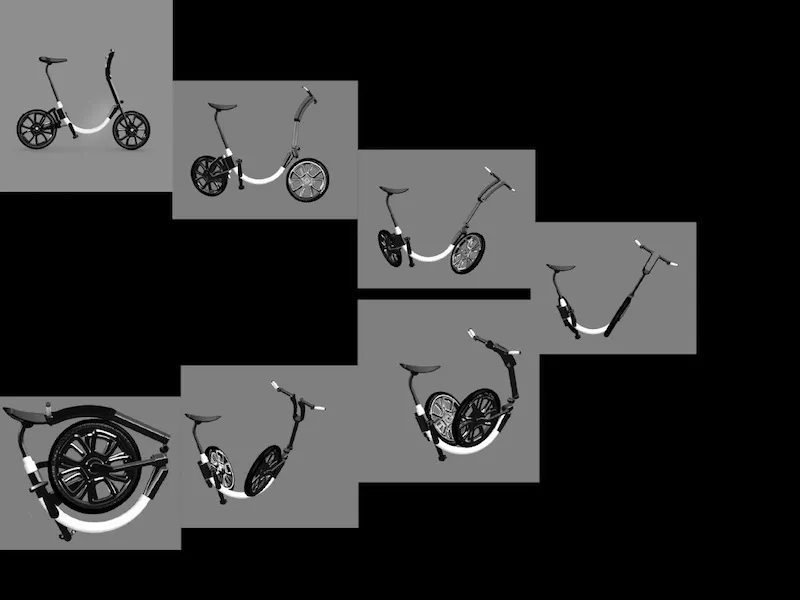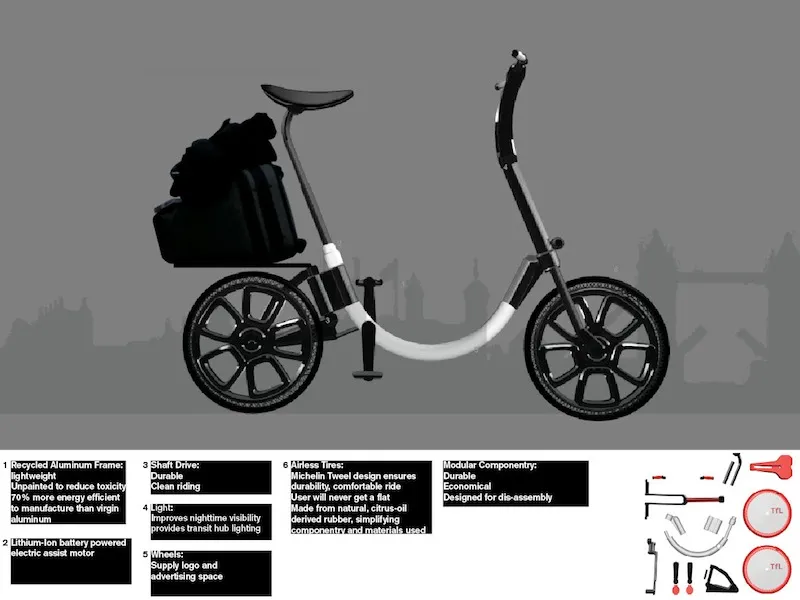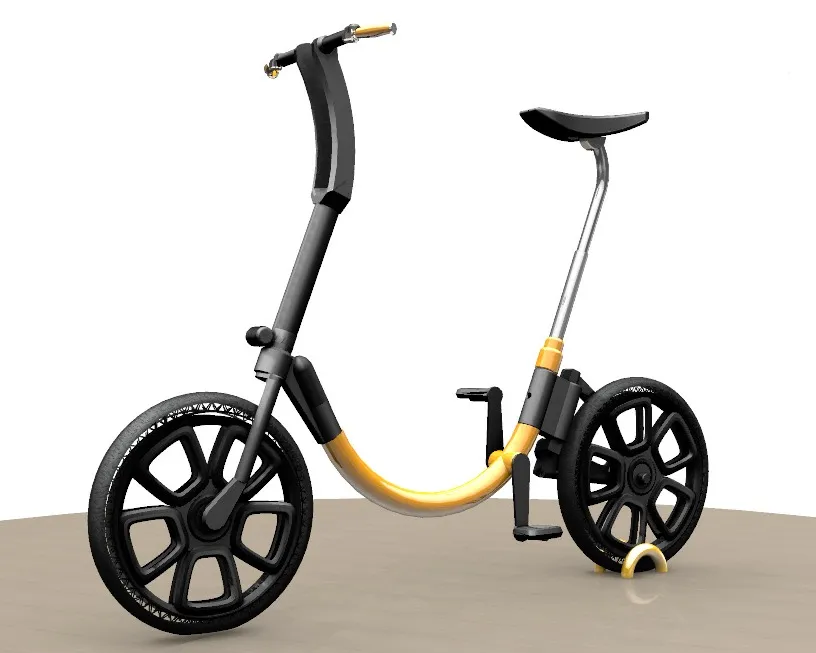No matter how great or innovative an idea, these days it takes considerable investment to bring it to market. Traditional bank loans can be hard to come by and venture capital can steer an innovator away from their original intent. In light of these challenges, award-winning e-bike designer Gabriel Wartofsky has taken a unique approach towards raising funds to jumpstart US manufacturing for his bikes.
Fittingly he launched a KickStarter campaign, to raise the capital needed, which, so far, has raised US$500 more than his goal of $25,000. KickStarter is an Internet funding platform that allows potential users to actually be involved in funding a product they believe in. “KickStarter provides many advantages to us,” Wartofsky tells BikeRadar. “KickStarter's pledgers tend to be highly influential people, early adopters who set the trends within their circles and communities. These supporters help spread the word to other potential supporters who trust their taste and guidance.”
Furthermore the KickStart program can provide a high level of exposure and validation points, which can in turn court other investors. “If we’ve made it on KickStarter, we know that we have a relevant, fun project,” adds Wartofsky. “We also know that many other people now know this, too!”
But this doesn’t mean that investors have to be professional venture capitalists or Wall Street players to take part; Wartofsky notes that the programs allows for supporters to pledge from $1 on up, so people who are tight on cash can still participate. Additionally, this investment system also doesn’t require that the innovators have to sell their stake in the company or their metaphorical souls either. “KickStarter does not require that we have to give up shares to investors,” says Wartofsky, adding, “Therefore, our idea can stay under our guidance, with no risk of losing control to another party.”

Wartofsky's folding e-bike
E-bikes could also play a crucial role in getting people to consider alternative methods of commuting in America, where in most cities cars are still kings of the road. Wartofsky believes that e-bikes might encourage people to try using bicycles as an alternate form of transportation for their daily commutes. “Many people would like to diversify the way they get around in cities, but are often hindered by the need to arrive at a destination looking presentable,” says Wartofsky. “Many work places are not equipped with showers, and people don't want to start their day with the hassle of changing clothes at their workplace, risking chain grease stains on their fingers and clothing, and finding a safe, appropriate place to park their bikes.”
The electric assist bike empowers users to get to the nearest transit hub or final destination sweat-free, grease-free, and without a hassle, says Wartokfsky. Plus, the e-bikes that he is helping develop can simply be folded up, stored beside a desk, under their bus seat, or in the trunk of a car. But beyond commuting, e-bikes could offer other opportunities for Americans, especially as the price at the gas pump doesn’t look like it will drop anytime soon.
“Many consumers don't know how to initially justify the higher price of a good electric bike,” says Wartofsky, adding that he is approaching this in a few ways, including b by raising awareness of the fact is that e-bikes end up saving their owner’s a lot of money. “Less fuel, less car-related costs. According to the American Public Transportation Association’s monthly Transit Savings Report, if coupled with public transit, individuals save, on average, $9,968 annually and $831 per month.”
In addition to trying to undercut the competition, Wartofsky is looking at rental and bikeshare applications, which will increase access to e-bikes to people who can't afford the initial costs. Additionally, cities and corporations who fund these bike shares end up saving by reducing costs via many tax incentives and infrastructure projects including parking lots.
The final key to Wartofsky’s plan is to address a big issue with e-bikes, what he calls the “need to have one” design. “They generally look like rolling science projects. People enjoy personal transportation for reasons outside of the inherent practicalities: they also want to look good, and own nice things.”

KickStarters micro-financiers bought into Wartofsky's folding e-bike concept
He adds that good design is actually about simplicity, so that the bike can be comfortable to ride, pleasant to look at and easy to store. “Bicycles are a joy to ride, and have applications beyond the recreational: they are practical, efficient machines that enhance the quality of your life and environment,” says Wartofsky. “We aim to make them more practical for the mainstream user who would like to ride a bike, but can't afford the aforementioned compromises.”

